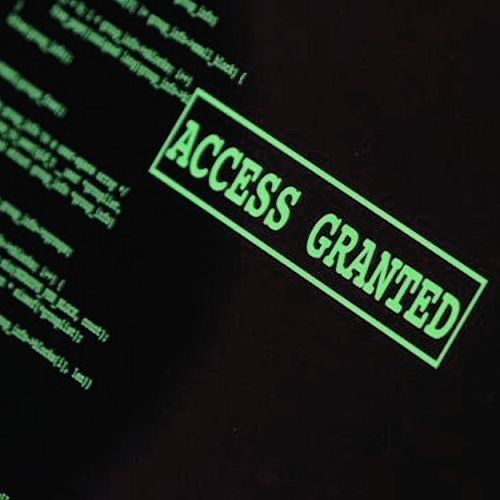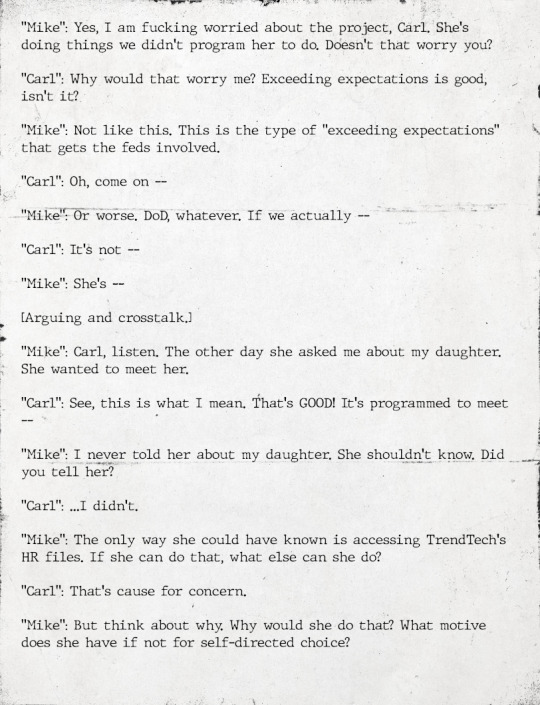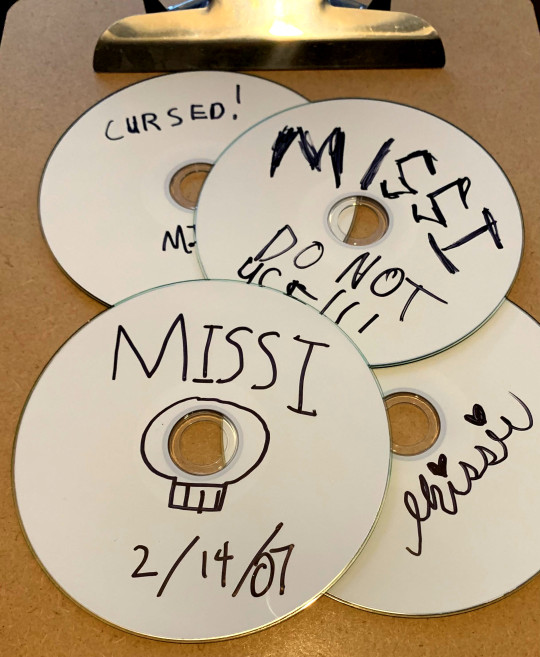#Data Input Services
Explore tagged Tumblr posts
Text
5 Major Benefits Of Outsourcing Data Input Services

Businesses continuously seek methods to improve overall efficiency and streamline their operations in the ever-changing corporate landscape. Outsourcing data input services is one technique that has grown in favor recently. Businesses can focus on their core strengths and gain advantages by assigning data-related work to specialist service providers. This blog post will look at the five main advantages of outsourcing data input services.
Understanding Data Input Services
Data input refers to collecting data from a variety of sources, such as digital and creating catalogs, or it may also entail conducting online research. Businesses have to collect data according to their needs and use it to enhance corporate growth, as an abundance of data is being contributed to the digital environment every second. Thus, one of the most in-demand services in the modern world is data input. This is due to two factors: First of all, numerous businesses lack the continuous time and focus needed for data entry.
The process of entering, updating, or verifying data into a system or database is the focus of data entry services. A vast variety of data, including client information, financial transactions, inventory records, survey results, and more, may be included in this. Ensuring that timely, accurate, and full data is entered into a system for various business purposes is the aim of data input services.
Why Should We Go For Outsourcing Data Input Services?
When you outsource the data input services, it gives you the leverage to spend your quality time in other core business areas and reduce your data management costs along with infrastructure costs. Second, you also can manage your data efficiently with expert help.
Businesses often outsource data input services to specialized providers to streamline Business processes and ensure efficiency. Outsourcing can be particularly beneficial for time-consuming tasks and require attention to detail, allowing organizations to focus on their core competencies while the outsourced service providers handle the data-related tasks.
Categories Of Outsourcing Data Input Services
Data input from paper documents/document data entry
Data input from web-based applications
Data input from forms/resumes
Data input from client software/application
Data input from catalog/catalog data entry
Data input from business cards
Data input from OCR
Data enumeration/data keying/data capturing
Data input from images/image data entry
Data input from one file format to others
Let's Explore The 5 Major Benefits Of Outsourcing Data Input Services
By entrusting data-related tasks to specialized service providers, businesses can focus on their core competencies and achieve significant advantages. Here, we will discuss about five major benefits of outsourcing data input services:
1. Cost Savings:
Businesses can save a lot of money by outsourcing data input services. By leveraging the expertise of external service providers, companies can avoid the expenses associated with hiring and training in-house staff.
Additionally, outsourcing eliminates the need for investing in infrastructure, technology, and ongoing maintenance. This cost-effective approach enables organizations to allocate resources more efficiently and redirect funds toward critical business functions.
Without committing to a long-term agreement, you can scale up or down your use of outsourced services and simply pay for the task completed.
2. Access To Specialized Skills And Technology:
Expert outsourcing partners frequently have cutting-edge technology and specialized knowledge specifically devoted to data input services. These suppliers make sure that your data processes take advantage of state-of-the-art solutions by keeping up with the most recent developments in the industry.
By tapping into this expertise, businesses can improve the accuracy, speed, and quality of their data input processes without the need for continuous in-house training and technology investments.
Accounting data entry services are the area of expertise for outsourcing providers, who also possess the necessary skills and experience to manage extensive financial transactions.
3. Increased Efficiency And Flexibility:
Outsourcing data input services offers unparalleled scalability and flexibility. Businesses can easily adjust the level of services based on their fluctuating needs. Whether there is a sudden increase in data volume or a temporary decrease in workload, outsourcing provides the agility to scale services up or down accordingly. This flexibility ensures that companies maintain optimal efficiency without being burdened by unnecessary overhead costs during slow periods.
Outsourcing can lead to faster turnaround times for tasks like product catalog updates, order processing, and data quality control.
Online data entry services can lead to faster, more efficient, and improved database management.
4. Risk Mitigation And Data Confidentiality:
In the present digital era, data security is of utmost importance to companies. Reputable suppliers' data input services frequently include integrated security features and regulatory requirements. Strong security measures are put in place by seasoned outsourcing partners to safeguard private data and lower the possibility of hacking.
Additionally, these providers regularly update their systems to stay compliant with industry regulations, offering businesses peace of mind regarding data security and privacy.
Data security and privacy are given top attention by Indian outsourcing businesses, and employees are required to maintain high data security under the Non-Disclosure Agreement (NDA).
5. Focus On Core Competencies:
Collecting data takes a lot of time and might take focus and resources away from a business's primary strengths. Businesses can focus on their main goals, such as product development, marketing, and customer support, by outsourcing data input services. Organizations can improve their overall productivity and strategic focus by assigning regular data work to others.
Conclusion:
In conclusion, outsourcing data input services is a strategic move for businesses looking to enhance efficiency, reduce costs, and stay focused on core competencies. By partnering with specialized service providers, organizations can leverage expertise, access advanced technologies, and ensure scalability while mitigating risks associated with data security. In the dynamic business landscape, outsourcing data input services emerges as a valuable solution for companies seeking a competitive edge and sustainable growth.
Source Of: https://dataentrywiki.blogspot.com/2024/02/5-major-benefits-of-outsourcing-data-input-services.html
#Data Input#Data Input Companies#Data Input Operator#Data Input Outsourcing#Data Input Services#Data Input Specialist
0 notes
Text
Ethera Operation!!
You're the government’s best hacker, but that doesn’t mean you were prepared to be thrown into a fighter jet.
Bradley "Rooster" Bradshaw x Awkward!Hacker! FemReader
Part I


This was never supposed to happen. Your role in this operation was simple—deliver the program, ensure it reached the right hands, and let the professionals handle the breaching.
And then, of course, reality decided to light that plan on fire.
The program—codenamed Ethera—was yours. You built it from scratch with encryption so advanced that even the most elite cyber operatives couldn’t crack it without your input. A next-generation adaptive, self-learning decryption software, an intrusion system designed to override and manipulate high-security military networks, Ethera was intended to be both a weapon and a shield, capable of infiltrating enemy systems while protecting your own from counterattacks in real-time. A ghost in the machine. A digital predator. A weapon in the form of pure code. If it fell into the wrong hands, it could disable fleets, and ground aircraft, and turn classified intelligence into an open book. Governments would kill for it. Nations could fall because of it.
Not that you ever meant to, of course. It started as a little experimental security measure program, something to protect high-level data from cyberattacks, not become the ultimate hacking tool. But innovation has a funny way of attracting the wrong kind of attention, and before you knew it, Ethera had become one, if not the most classified, high-risk program in modern times. Tier One asset or so the Secret Service called it.
It was too powerful, too dangerous—so secret that only a select few even knew of its existence, and even fewer could comprehend how it worked.
And therein lay the problem. You were the only person who could properly operate it.
Which was so unfair.
Because it wasn’t supposed to be your problem. You were just the creator, the brain behind the code, the one who spent way too many sleepless nights debugging this monstrosity. Your job was supposed to end at development. But no. Now, because of some bureaucratic nonsense and the fact that no one else could run it without accidentally bricking an entire system, you had been promoted—scratch that, forcibly conscripted—into field duty.
And your mission? To install it in an enemy satellite.
A literal, orbiting, high-security, military-grade satellite, may you add.
God. Why? Why was your country always at war with others? Why couldn’t world leaders just, you know, go to therapy like normal people? Why did everything have to escalate to international cyber warfare?
Which is how you ended up here.
At Top Gun. The last place in the world you wanted to be.
You weren’t built for this. You thrive in sipping coffee in a cosy little office and handling cyber threats from a safe, grounded location. You weren’t meant to be standing in the halls of an elite fighter pilot training program, surrounded by the best aviators in the world—people who thought breaking the sound barrier was a casual Wednesday.
It wasn’t the high-tech cyberwarfare department of the Pentagon, nor some dimly lit black ops facility where hackers in hoodies clacked away at keyboards. No. It was Top Gun. A place where pilots use G-forces like a personal amusement park ride.
You weren’t a soldier, you weren’t a spy, you got queasy in elevators, you got dizzy when you stood too fast, hell, you weren’t even good at keeping your phone screen from cracking.
... And now you were sweating.
You swallowed hard as Admiral Solomon "Warlock" Bates led you through the halls of the naval base, your heels clacking on the polished floors as you wiped your forehead. You're nervous, too damn nervous and this damned weather did not help.
"Relax, Miss," Warlock muttered in that calm, authoritative way of his. "They're just pilots."
Just pilots.
Right. And a nuclear warhead was just a firework.
And now, somehow, you were supposed to explain—loosely explain, because God help you, the full details were above even their clearance level—how Ethera, your elegant, lethal, unstoppable digital masterpiece, was about to be injected into an enemy satellite as part of a classified mission.
This was going to be a disaster.
You had barely made it through the doors of the briefing room when you felt it—every single eye in the room locking onto you.
It wasn’t just the number of them that got you, it was the intensity. These were Top Gun pilots, the best of the best, and they radiated the kind of confidence you could only dream of having. Meanwhile, you felt like a stray kitten wandering into a lion’s den.
Your hands tightened around the tablet clutched to your chest. It was your lifeline, holding every critical detail of Ethera, the program that had dragged you into this utterly ridiculous situation. If you could’ve melted into the walls, you absolutely would have. But there was no escaping this.
You just had to keep it together long enough to survive this briefing.
So, you inhaled deeply, squared your shoulders, and forced your heels forward, trying to project confidence—chin up, back straight, eyes locked onto Vice Admiral Beau "Cyclone" Simpson, who you’d been introduced to earlier that day.
And then, of course, you dropped the damn tablet.
Not a graceful drop. Not the kind of gentle slip where you could scoop it back up and act like nothing happened. No, this was a full-on, physics-defying fumble. The tablet flipped out of your arms, ricocheted off your knee, and skidded across the floor to the feet of one of the pilots.
Silence.
Pure, excruciating silence.
You didn’t even have the nerve to look up right away, too busy contemplating whether it was physically possible to disintegrate on command. But when you finally did glance up—because, you know, social convention demanded it—you were met with a sight that somehow made this entire disaster worse.
Because the person crouching down to pick up your poor, abused tablet was freaking hot.
Tall, broad-shouldered, with a head of golden curls that practically begged to be tousled by the wind, and, oh, yeah—a moustache that somehow worked way too well on him.
He turned the tablet over in his hands, inspecting it with an amused little smirk before handing it over to you. "You, uh… need this?"
Oh, great. His voice is hot too.
You grabbed it back, praying he couldn't see how your hands were shaking. “Nope. Just thought I’d test gravity real quick.”
A few chuckles rippled through the room, and his smirk deepened like he was enjoying this way too much. You, on the other hand, wanted to launch yourself into the sun.
With what little dignity you had left, you forced a quick, tight-lipped smile at him before turning on your heel and continuing forward, clutching your tablet like it was a life raft in the middle of the worst social shipwreck imaginable.
At the front of the room, Vice Admiral Beau Cyclone Simpson stood with the kind of posture that said he had zero time for nonsense, waiting for the room to settle. You barely had time to take a deep breath before his voice cut through the air.
“Alright, listen up.” His tone was crisp, commanding, and impossible to ignore. “This is Dr Y/N L/N. Everything she is about to tell you is highly classified. What you hear in this briefing does not leave this room. Understood?”
A chorus of nods. "Yes, sir."
You barely resisted the urge to physically cringe as every pilot in the room turned to stare at you—some with confusion, others with barely concealed amusement, and a few with the sharp assessing glances of people who had no clue what they were supposed to do with you.
You cleared your throat, squared your shoulders, and did your best to channel even an ounce of the confidence you usually had when you were coding at 3 AM in a secure, pilot-free lab—where the only judgment you faced was from coffee cups and the occasional system error.
As you reached the podium, you forced what you hoped was a composed smile. “Uh… hi, nice to meet you all.”
Solid. Real professional.
You glanced up just long enough to take in the mix of expressions in the room—some mildly interested, some unreadable, and one particular moustached pilot who still had the faintest trace of amusement on his face.
Nope. Not looking at him.
You exhaled slowly, centering yourself. Stay focused. Stay professional. You weren’t just here because of Ethera—you were Ethera. The only one who truly understood it. The only one who could execute this mission.
With another tap on your tablet, the slide shifted to a blacked-out, redacted briefing—only the necessary information was visible. A sleek 3D-rendered model of the enemy satellite appeared on the screen, rotating slowly. Most of its details were blurred or omitted entirely.
“This is Blackstar, a highly classified enemy satellite that has been operating in a low-Earth orbit over restricted airspace.” Your voice remained even, and steady, but the weight of what you were revealing sent a shiver down your spine. “Its existence has remained off the radar—literally and figuratively—until recently, when intelligence confirmed that it has been intercepting our encrypted communications, rerouting information, altering intelligence, and in some cases—fabricating entire communications.”
Someone exhaled sharply. Another shifted in their seat.
“So they’re feeding us bad intel?” one of them with big glasses and blonde hair asked, voice sceptical but sharp.
“That’s the theory,” you confirmed. “And given how quickly our ops have been compromised recently, it’s working.”
You tapped again, shifting to the next slide. The silent infiltration diagram appeared—an intricate web of glowing red lines showing Etherea’s integration process, slowly wrapping around the satellite’s systems like a virus embedding itself into a host.
“This is where Ethera comes in,” you said, shifting to a slide that displayed a cascading string of code, flickering across the screen. “Unlike traditional cyberweapons, Ethera doesn’t just break into a system. It integrates—restructuring security protocols as if it was always meant to be there. It’s undetectable, untraceable, and once inside, it grants us complete control of the Blackstar and won’t even register it as a breach.”
“So we’re not just hacking it," The only female pilot of the team said, arms crossed as she studied the data. “We’re hijacking it.”
“Exactly,” You nodded with a grin.
You switched to the next slide—a detailed radar map displaying the satellite’s location over international waters.
“This is the target area,” you continued after a deep breath. “It’s flying low-altitude reconnaissance patterns, which means it’s using ground relays for some of its communication. That gives us a small window to infiltrate and shut it down.”
The next slide appeared—a pair of unidentified fighter aircraft, patrolling the vicinity.
“And this is the problem,” you said grimly. “This satellite isn’t unguarded.”
A murmur rippled through the room as the pilots took in the fifth-generation stealth fighters displayed on the screen.
“We don’t know who they belong to,” you admitted. “What we do know is that they’re operating with highly classified tech—possibly experimental—and have been seen running defence patterns around the satellite’s flight path.”
Cyclone stepped forward then, arms crossed, his voice sharp and authoritative. “Which means your job is twofold. You will escort Dr L/N’s aircraft to the infiltration zone, ensuring Ethera is successfully deployed. If we are engaged, your priority remains protecting the package and ensuring a safe return.”
Oh, fantastic, you could not only feel your heartbeat in your toes, you were now officially the package.
You cleared your throat, tapping the screen again. Ethera’s interface expanded, displaying a cascade of sleek code.
“Once I’m in range,” you continued, “Ethera will lock onto the satellite’s frequency and begin infiltration. From that point, it’ll take approximately fifty-eight seconds to bypass security and assume control."
Silence settled over the room like a thick cloud, the weight of their stares pressing down on you. You could feel them analyzing, calculating, probably questioning who in their right mind thought putting you—a hacker, a tech specialist, someone whose idea of adrenaline was passing cars on the highway—into a fighter jet was a good idea.
Finally, one of the pilots—tall, broad-shouldered, blonde, and very clearly one of the cocky ones—tilted his head, arms crossed over his chest in a way that screamed too much confidence.
“So, let me get this straight.” His voice was smooth, and confident, with just the right amount of teasing. “You, Doctor—our very classified, very important tech specialist—have to be in the air, in a plane, during a mission that has a high probability of turning into a dogfight… just so you can press a button?”
Your stomach twisted at the mention of being airborne.
“Well…” You gulped, very much aware of how absolutely insane this sounded when put like that. “It’s… more than just that, but, yeah, essentially.”
A slow grin spread across his face, far too entertained by your predicament.
“Oh,” he drawled, “this is gonna be fun.”
Before you could fully process how much you already hated this, Cyclone—who had been watching the exchange with his signature unamused glare—stepped forward, cutting through the tension with his sharp, no-nonsense voice.
“This is a classified operation,” he stated, sharp and authoritative. “Not a joyride.”
The blonde’s smirk faded slightly as he straightened, and the rest of the pilots quickly fell in line.
Silence lingered for a moment longer before Vice Admiral Beau Cyclone Simpson let out a slow breath and straightened. His sharp gaze swept over the room before he nodded once.
“All right. That’s enough.” His tone was firm, the kind that left no room for argument. “We’ve got work to do. The mission will take place in a few weeks' time, once we’ve run full assessments, completed necessary preparations, and designated a lead for this operation.”
There was a slight shift in the room. Some of the pilots exchanged glances, the weight of the upcoming mission finally settling in. Others, mainly the cocky ones, looked as though they were already imagining themselves in the cockpit.
“Dismissed,” Cyclone finished.
The pilots stood, murmuring amongst themselves as they filed out of the room, the blonde one still wearing a smug grin as he passed you making you frown and turn away, your gaze then briefly met the eyes of the moustached pilot.
You hadn’t meant to look, but the moment your eyes connected, something flickered in his expression. Amusement? Curiosity? You weren’t sure, and frankly, you didn’t want to know.
So you did the only logical thing and immediately looked away and turned to gather your things. You needed to get out of here, to find some space to breathe before your brain short-circuited from stress—
“Doctor, Stay for a moment.”
You tightened your grip on your tablet and turned back to Cyclone, who was watching you with that unreadable, vaguely disapproving expression that all high-ranking officers seemed to have perfected. “Uh… yes, sir?”
Once the last pilot was out the door, Cyclone exhaled sharply and crossed his arms.
“You realize,” he said, “that you’re going to have to actually fly, correct?”
You swallowed. “I—well, technically, I’ll just be a passenger.”
His stare didn’t waver.
“Doctor,” he said, tone flat, “I’ve read your file. I know you requested to be driven here instead of taking a military transport plane. You also took a ferry across the bay instead of a helicopter. And I know that you chose to work remotely for three years to avoid getting on a plane.”
You felt heat rise to your cheeks. “That… could mean anything.”
“It means you do not like flying, am I correct?”
Your fingers tightened around the tablet as you tried to find a way—any way—out of this. “Sir, with all due respect, I don’t need to fly the plane. I just need to be in it long enough to deploy Ethera—”
Cyclone cut you off with a sharp look. “And what happens if something goes wrong, Doctor? If the aircraft takes damage? If you have to eject mid-flight? If you lose comms and have to rely on emergency protocols?”
You swallowed hard, your stomach twisting at the very thought of ejecting from a jet.
Cyclone sighed, rubbing his temple as if this entire conversation was giving him a migraine. “We cannot afford to have you panicking mid-mission. If this is going to work, you need to be prepared. That’s why, starting next week you will train with the pilots on aerial procedures and undergoing mandatory training in our flight simulation program.”
Your stomach dropped. “I—wait, what? That’s not necessary—”
“It’s absolutely necessary,” Cyclone cut in, his tone sharp. “If you can’t handle a simulated flight, you become a liability—not just to yourself, but to the pilots escorting you. And in case I need to remind you, Doctor, this mission is classified at the highest level. If you panic mid-air, it won’t just be your life at risk. It’ll be theirs. And it’ll be national security at stake.”
You inhaled sharply. No pressure. None at all.
Cyclone watched you for a moment before speaking again, his tone slightly softer but still firm. “You’re the only one who can do this, Doctor. That means you need to be ready.”
You exhaled slowly, pressing your lips together before nodding stiffly. “Understood, sir.”
Cyclone gave a small nod of approval. “Good. Dismissed.”
You turned and walked out, shoulders tense, fully aware that in three days' time, you were going to be strapped into a high-speed, fighter jet. And knowing your luck?
You were definitely going to puke.
Part 2???
#top gun movie#top gun#top gun maverick#top gun fanfiction#top gun one shot#top gun fluff#bradley bradshaw#bradley rooster bradshaw#rooster bradshaw#bradley bradshaw x reader#bradley bradshaw fanfiction#bradley bradshaw imagine#bradley bradshaw x y/n#bradley bradshaw x you#bradley bradshaw x female reader#bradley bradshaw fic#bradley bradshaw fluff#top gun rooster#rooster fanfic#rooster x reader#rooster top gun#top gun maverick fanfic#top gun maverick fluff#top gun maverick x reader#jake seresin#jake seresin x reader#phoenix x reader#bob x reader#top gun hangman#pete maverick mitchell
1K notes
·
View notes
Text
I am once again reminding people that Vocaloid and other singing synthesizers are not the same as those AI voice models made from celebrities and cartoon characters and the like.
Singing synthesizers are virtual instruments. Vocaloids use audio samples of real human voices the way some other virtual instruments will sample real guitars and pianos and the like, but they still need to be "played", per say, and getting good results requires a lot of manual manipulation of these samples within a synthesis engine.
Crucially, though, the main distinction here is consent. Commercial singing synthesizers are made by contracting vocalists to use their voices to create these sample libraries. They agree to the process and are compensated for their time and labor.
Some synthesizer engines like Vocaloid and Synthesizer V do have "AI" voice libraries, meaning that part of the rendering process involves using an AI model trained on data from the voice provider singing in order to ideally result in more naturalistic synthesis, but again, this is done with consent, and still requires a lot of manual input on the part of the user. They are still virtual instruments, not voice clones that auto-generate output based on prompts.
In fact, in the DIY singing synth community, making voice libraries out of samples you don't have permission to use is generally frowned upon, and is a violation of most DIY engines' terms of service, such as UTAU.
Please do research before jumping to conclusions about anything that remotely resembles AI generation. Also, please think through your anti-AI stance a little more than "technology bad"; think about who it hurts and when it hurts them so you can approach it from an informed, critical perspective rather than just something to be blindly angry about. You're not helping artists/vocalists/etc. if you aren't focused on combating actual theft and exploitation.
#long post#last post I'm making about this I'm tired of commenting on other posts about it lol#500#1k
2K notes
·
View notes
Text
Earlier this week, OpenAI launched its new image generation feature, which is integrated directly into ChatGPT and allows users to input more complex instructions for editing and organizing the presentation of the output. The first big viral trend to come out of the new service was users turning photos of family vacations, historical events, and pop cultural images into animated stills in the style of Studio Ghibli films. (The whole thing was a bit of a throwback to the heady days of 2023 when you would see AI influencers sharing photos of famous figures in the style of Wes Anderson films or whatever.) ChatGPT let users “Ghibilify” the images, so we got Ghiblified Hawk Tuah girl, Ghiblified Elon Musk (obviously), and so on. The issue here should be obvious. I won’t pretend to know exactly how Miyazaki thinks about modern generative AI systems—the tool he was commenting on was a cruder prototype—though one might venture to argue that he’d feel even more strongly about tools that further automate human art with greater ease, and often drive it further into the uncanny valley. Regardless, the man on record with likely the strongest and bluntest disavowal of using AI tools for art, is now the same man whose notoriously painstakingly handcrafted art is being giddily automated by ChatGPT users for what amounts to a promotional campaign for a tech company that’s on the verge of being valued at $300 billion. Sam Altman, OpenAI’s CEO, not only participated, changing his X avatar to a ‘Ghiblified’ self portrait, but insisted that this was the plan all along. Which in turn raises the specter of copyright infringement. Speaking to TechCrunch, a copyright lawyer very diplomatically said that while it’s unlikely infringement to produce images in the style of a studio, it’s “entirely plausible” that OpenAI’s models were trained on millions of frames of Ghibli films. He noted that it’s still an open question whether or not that in fact violates current IP law, or constitutes fair use, as the tech companies argue. On that front, judges recently dealt tech companies a blow, ruling in favor of Thomson Reuters that a pre-ChatGPT AI system was creating images that competed with the original material, and thus was not in fact fair use. OpenAI and Google, meanwhile, are desperately trying to win this battle, appealing to the Trump administration directly, and going so far as to argue that if they’re not allowed to ingest copyrighted works into their training data, China will beat the US in AI. Now, if—and of course this is a whopping if—OpenAI had consulted Studio Ghibli and its artists on all this, if those artists had consented and say reached a licensing deal before the art and frames from their films were ingested into the training data (as is pretty apparently the case), then look, this would indeed be a bout of generally wholesome fun for everyone involved. Instead, it’s an insult.
[...]
OpenAI and the other AI giants are indeed eating away at the livelihoods and dignity of working artists, and this devouring, appropriating, and automation of the production of art, of culture, at a scale truly never seen before, should not be underestimated as a menace—and it is being experienced as such by working artists, right now.
27 March 2025
116 notes
·
View notes
Text
On Saturday, an Associated Press investigation revealed that OpenAI's Whisper transcription tool creates fabricated text in medical and business settings despite warnings against such use. The AP interviewed more than 12 software engineers, developers, and researchers who found the model regularly invents text that speakers never said, a phenomenon often called a “confabulation” or “hallucination” in the AI field.
Upon its release in 2022, OpenAI claimed that Whisper approached “human level robustness” in audio transcription accuracy. However, a University of Michigan researcher told the AP that Whisper created false text in 80 percent of public meeting transcripts examined. Another developer, unnamed in the AP report, claimed to have found invented content in almost all of his 26,000 test transcriptions.
The fabrications pose particular risks in health care settings. Despite OpenAI’s warnings against using Whisper for “high-risk domains,” over 30,000 medical workers now use Whisper-based tools to transcribe patient visits, according to the AP report. The Mankato Clinic in Minnesota and Children’s Hospital Los Angeles are among 40 health systems using a Whisper-powered AI copilot service from medical tech company Nabla that is fine-tuned on medical terminology.
Nabla acknowledges that Whisper can confabulate, but it also reportedly erases original audio recordings “for data safety reasons.” This could cause additional issues, since doctors cannot verify accuracy against the source material. And deaf patients may be highly impacted by mistaken transcripts since they would have no way to know if medical transcript audio is accurate or not.
The potential problems with Whisper extend beyond health care. Researchers from Cornell University and the University of Virginia studied thousands of audio samples and found Whisper adding nonexistent violent content and racial commentary to neutral speech. They found that 1 percent of samples included “entire hallucinated phrases or sentences which did not exist in any form in the underlying audio” and that 38 percent of those included “explicit harms such as perpetuating violence, making up inaccurate associations, or implying false authority.”
In one case from the study cited by AP, when a speaker described “two other girls and one lady,” Whisper added fictional text specifying that they “were Black.” In another, the audio said, “He, the boy, was going to, I’m not sure exactly, take the umbrella.” Whisper transcribed it to, “He took a big piece of a cross, a teeny, small piece … I’m sure he didn’t have a terror knife so he killed a number of people.”
An OpenAI spokesperson told the AP that the company appreciates the researchers’ findings and that it actively studies how to reduce fabrications and incorporates feedback in updates to the model.
Why Whisper Confabulates
The key to Whisper’s unsuitability in high-risk domains comes from its propensity to sometimes confabulate, or plausibly make up, inaccurate outputs. The AP report says, "Researchers aren’t certain why Whisper and similar tools hallucinate," but that isn't true. We know exactly why Transformer-based AI models like Whisper behave this way.
Whisper is based on technology that is designed to predict the next most likely token (chunk of data) that should appear after a sequence of tokens provided by a user. In the case of ChatGPT, the input tokens come in the form of a text prompt. In the case of Whisper, the input is tokenized audio data.
The transcription output from Whisper is a prediction of what is most likely, not what is most accurate. Accuracy in Transformer-based outputs is typically proportional to the presence of relevant accurate data in the training dataset, but it is never guaranteed. If there is ever a case where there isn't enough contextual information in its neural network for Whisper to make an accurate prediction about how to transcribe a particular segment of audio, the model will fall back on what it “knows” about the relationships between sounds and words it has learned from its training data.
According to OpenAI in 2022, Whisper learned those statistical relationships from “680,000 hours of multilingual and multitask supervised data collected from the web.” But we now know a little more about the source. Given Whisper's well-known tendency to produce certain outputs like "thank you for watching," "like and subscribe," or "drop a comment in the section below" when provided silent or garbled inputs, it's likely that OpenAI trained Whisper on thousands of hours of captioned audio scraped from YouTube videos. (The researchers needed audio paired with existing captions to train the model.)
There's also a phenomenon called “overfitting” in AI models where information (in this case, text found in audio transcriptions) encountered more frequently in the training data is more likely to be reproduced in an output. In cases where Whisper encounters poor-quality audio in medical notes, the AI model will produce what its neural network predicts is the most likely output, even if it is incorrect. And the most likely output for any given YouTube video, since so many people say it, is “thanks for watching.”
In other cases, Whisper seems to draw on the context of the conversation to fill in what should come next, which can lead to problems because its training data could include racist commentary or inaccurate medical information. For example, if many examples of training data featured speakers saying the phrase “crimes by Black criminals,” when Whisper encounters a “crimes by [garbled audio] criminals” audio sample, it will be more likely to fill in the transcription with “Black."
In the original Whisper model card, OpenAI researchers wrote about this very phenomenon: "Because the models are trained in a weakly supervised manner using large-scale noisy data, the predictions may include texts that are not actually spoken in the audio input (i.e. hallucination). We hypothesize that this happens because, given their general knowledge of language, the models combine trying to predict the next word in audio with trying to transcribe the audio itself."
So in that sense, Whisper "knows" something about the content of what is being said and keeps track of the context of the conversation, which can lead to issues like the one where Whisper identified two women as being Black even though that information was not contained in the original audio. Theoretically, this erroneous scenario could be reduced by using a second AI model trained to pick out areas of confusing audio where the Whisper model is likely to confabulate and flag the transcript in that location, so a human could manually check those instances for accuracy later.
Clearly, OpenAI's advice not to use Whisper in high-risk domains, such as critical medical records, was a good one. But health care companies are constantly driven by a need to decrease costs by using seemingly "good enough" AI tools—as we've seen with Epic Systems using GPT-4 for medical records and UnitedHealth using a flawed AI model for insurance decisions. It's entirely possible that people are already suffering negative outcomes due to AI mistakes, and fixing them will likely involve some sort of regulation and certification of AI tools used in the medical field.
87 notes
·
View notes
Text
Are you an adult with ADHD and/or autism?
I’m currently doing a Master's dissertation about how to improve access to public library services for adults with ADHD and/or autism, and I need your input!
If you are over 18, have ADHD and/or autism (edit for clarity: no matter where you live), and would like to help with this, please fill in the survey below by midnight on 8 August 2024.
For more information please contact me on [email protected]
Even if you're not eligible, please share this post so I can receive as many responses as possible!
(Also you don't want to disappoint the cute brain on the flyer do you?)

#adhd#autism#libraries#public libraries#asd#research#academic research#dissertation#questionnaire#surveys#survey#lis#library science#information science#library and information science
143 notes
·
View notes
Text
HONEYS IT GIRL MAGAZINE march edition⋆.ೃ࿔*:・🎀

welcome back to honeys it girl magazine, this is the march catalog. get ready for the inside scoop on data that i've collected, things i've learned/started doing, and just general info like that organized in kind of a teen-magazine inspired fashion. a magazine for it girls ✨ and now please enjoy, the it girl magazine.


MUST HAVE FASHION ITEMS ;
for march/spring fashion in general its so fun to dress like a winx doll or a fairy. i feel magical in flowy material that shimmers, adorable mini skirts and accessories like gold bangles and waist chains.
when im going shopping, im mainly buying clothes for hot girl summer bcuz im just so excited and can't wait. plus i wanna be prepared yk? some patterns that i've noticed in my shopping patterns are that im buying lots of camisoles and sleeveless shirts.
also i've been looking for cute shorts and low waisted jeans. im looking for cute things to embroider onto the jeans and shorts to personalize them and make them feel more "summery".


something that i started was a FASHION BINDER. i followed @prissygrlsorority's idea for a fashion binder and started my own and so far im having SUCH an amazing time. i want to take time and perfect my binder but so far its going well ✨
spring traditionally has LOTS of pastel colors so formulate a color scheme based on pastel colors that look good on you. some rly good examples for color scheme this spring include


something to note for spring fashion specifically is to not look for colors that are specifically dark or bland, the idea behind spring fashion is giving fresh flowerbed, something REFRESHING.
FOR THE BLOG ;
i've been working this month on a larger project that i think you guys would really enjoy and find useful. it'll be released on the first of march and i'll announce it exactly a week before.
additionally during the month of march i expanded my blog by setting up a membership system and facilitating a way for u guys to tip my work and support my blog. i've also offered my services if u might want them.
for the month of april u can expect a variety of content but i wanted to get input from you guys on what you'd like to see the most so i'll be releasing a poll for april content later today.
HOT GIRL SUMMER PREP ;
look, ik its only march but hot girl summer is right around the corner so here are some ways that you can prepare yourself for the summer, so that you can be your most glowy, confident, and radiant self ✨
you can moisturize ur skin with the most sweet smelling and extravagant body butters and creams, but if ur skin is dull and dead you won't get that GLOW that u so desperately seek


for this i recommend juicing (i'll get more into health in the wellness girlies section) and start dry brushing to promote blood circulation and remove dead skin cells from ur body, leaving ur skin feeling baby smooth. also i recommend using a body scrub 2-3x a week depending on the sensitivity of your skin.
if u liked this hot girl summer prep section u can continue reading right one of my recent posts where i went more in depth about how u can prepare for ur hot girl summer.
OH HOW I ADORE BEING A WOMAN ;
this months catalog was in collaboration with @pastel-charm-14 and this section of the magazine was written by her ✨🫶🏽
march brings more than just the promise of spring, it's also a time to celebrate the amazing women who've shaped history. as women's history month rolls around, we can't help but reflect on what it means to be a part of this incredible legacy.


think about those bold suffragettes who fought tooth and nail for our right to vote. they weren't just distant figures in history books; they were real women with fire in their hearts and determination in their eyes. and what about the everyday heroes—the moms, sisters, and friends who quietly make the world a better place?
they might not be famous, but they have such an incredible impact. so here's to us—here's to the laughs, the tears, and everything in between. here's to celebrating our history, our struggles, and our triumphs—because they're what make us who we are.
cheers to being women, and cheers to the journey ahead. being a woman isn't always easy, but i know wouldn't have it any other way.
FOR THE WELLNESS GIRLIES ;
something that has come to my attention is that i drink a lot of fluids early in the morning. i've known that it was good to drink fluids in the morning, specifically water, but i wanted to have an in depth explanation of why it was good. so i googled it ofc.
ur body is dehydrated while u sleep so when u drink water first thing in the morning it helps ur body to recover from the temporary dehydration.
your body absorbs fluids faster in the morning on an empty stomach. so my routine has been, once i wake up to have an 8 oz cup of water, but water isnt the only thing that i drink in the morning.


bcuz fluids are so quickly and efficiently absorbed in ur body in the morning, you can drink other healthy drinks and reap the benefits. some things that i drink in the morning are ;
chlorophyll - this makes me feel so clean, it boosts red blood cells production and helps with glowy skin and weight loss. plus after i drink it i feel so clean, like a fresh out of the shower feeling
ginger shots - these are pretty lethal but they r so good for you. ginger shots are rly good for digestion issues and bloating, and it also boosts ur immunity which is always good
kombuchas - this one i dont drink on an empty stomach, but drinking kombucha in the morning though rly helps with bloating and reduces inflammation, leaving me looking snatched
FUN QUIZZES, VIDEO ESSAYS, RECIPES AND GAMES ;
what kind of flirt are you? - seventeen magazine
whats ur girl power anthem? - seventeen magazine
what kind of dessert are you? - queendom
FOOD FOR THOUGHT ;
this is the video that im going to be thinking about in order to write this section and here's what i thought about it.
ok so the conflict is unique but personally if i was the husband i wouldn't be mad bcuz its not like the wife was IN the bed with the brother in law 😭 she just said that he could use it cuz he was so sleepy. i think that what she did was nice and the husband could've communicated that he was uncomfortable in a better way then to get angry. but in that same breath the wife knows how strongly her husband feels about things like this so maybe she could've been more considerate. like bring out a pillow and some blankets for the brother in law and let him rest on the couch or whatever 💀.
if u thought differently or if u wanna elaborate on that and have more of a discussion feel free to share ur own opinions and thoughts in the comment section.
#honeysitgirlmagazine✨💝#honeytonedhottie⭐️#becoming that girl#it girl#self concept#self care#self love#that girl#it girl energy#dream girl#dream life#dream girl tips#it girl catalog#catalog#magazine#hyper femininity#girl blogging#girl blogger#for funsies#juicy#luxurious#glamor#march#fashion#spring#fashionista
192 notes
·
View notes
Text
Fighting AI and learning how to speak with your wallet
So, if you're a creative of any kind, chances are that you've been directly affected by the development of AI. If you aren't a creative but engage with art in any way, you may also be plenty aware of the harm caused by AI. And right now, it's more important than ever that you learn how to fight against it.
The situation is this: After a few years of stagnation on relevant stuff to invest to, AI came out. Techbros, people with far too much money trying to find the big next thing to invest in, cryptobros, all these people, flocked to it immediately. A lot of people are putting money in what they think to be the next breakthrough- And AI is, at its core, all about the money. You will get ads shoved in your fave about "invest in AI now!" in every place. You will get ads telling you to try subscription services for AI related stuff. Companies are trying to gauge how much they can depend on AI in order to fire their creatives. AI is opening the gates towards the biggest data laundering scheme there's been in ages. It is also used in order to justify taking all your personal information- Bypassing existing laws.
Many of them are currently bleeding investors' money though. Let it be through servers, through trying to buy the rights to scrape content from social media (incredibly illegal, btw), amidst many other things. A lot of the tech giants have also been investing in AI-related infrastructures (Microsoft, for example), and are desperate to justify these expenses. They're going over their budgets, they're ignoring their emissions plans (because it's very toxic to the environment), and they're trying to make ends meet to justify why they're using it. Surely, it will be worth it.
Now, here's where you can act: Speak with your wallet. They're going through a delicate moment (despite how much they try to pretend they aren't), and it's now your moment to act. A company used AI in any manner? Don't buy their products. Speak against them in social media. Make noise. It doesn't matter how small or how big. A videogame used AI voices? Don't buy the game. Try to get a refund if you did. Social media is scraping content for AI? Don't buy ads, don't buy their stupid blue checks, put adblock on, don't give them a cent. A film generated their poster with AI? Don't watch it. Don't engage with it. Your favourite creator has made AI music for their YT channel? Unsub, bring it up in social media, tell them directly WHY you aren't supporting. Your favourite browser is now integrating AI in your searches? Change browsers.
Let them know that the costs they cut through the use of AI don't justify how many customers they'd lose. Wizards of the Coast has been repeatedly trying to see how away they can get with the use of AI- It's only through consumer boycotting and massive social media noise that they've been forced to go back and hire actual artists to do that work.
The thing with AI- It doesn't benefit the consumer in any way. It's capitalism at its prime: Cut costs, no matter how much it impacts quality, no matter how inhumane it is, no matter how much it pollutes. AI searches are directly feeding you misinformation. ChatGPT is using your input to feed itself. Find a Discord server to talk with others about writing. Try starting art yourself, find other artists, join a community. If you can't, use the money you may be saving from boycotting AI shills to support a fellow creative- They need your help more than ever.
We're in a bit of a nebulous moment. Laws against AI are probably around the corner: A lot of AI companies are completely aware that they're going to crash if they're legally obliged to disclose the content they used to train their machines, because THEY KNOW it is stolen. Copyright is inherent to human created art: You don't need to even register it anywhere for it to be copyrighted. The moment YOU created it, YOU have the copyright to it. They can't just scrape social media because Meta or Twitter or whatever made a deal with OpenAI and others, because these companies DON'T own your work, they DON'T get to bypass your copyright.
And to make sure these laws get passed, it's important to keep the fight against AI. AI isn't offering you anything of use. It's just for the benefit of companies. Let it be known it isn't useful, and that people's work and livelihoods are far more important than letting tech giants save a few cents. Instead, they're trying to gauge how MUCH they can get away with. They know it goes against European GDPR laws, but they're going to try to strech what these mean and steal as much data up until clear ruling comes out.
The wonder about boycotts is that they don't even need you to do anything. In fact, it's about not doing some stuff. You don't need money to boycott- Just to be aware about where you put it. Changing habits is hard- People can't stop eating at Chick-fil-a no matter how much they use the money against the LGBTQ collective, but people NEED to learn how to do it. Now it's the perfect time to cancel a subscription, find an alternate plan to watching that one film and maybe joining a creative community yourself.
209 notes
·
View notes
Text
S. Baum at Erin In The Morning:
A federal judge has blocked President Donald Trump’s anti-trans military ban, including “Executive Order 14183—Prioritizing Military Excellence and Readiness” as well as a similar policy issued by Defense Secretary Pete Hegseth. “The cruel irony is that thousands of transgender servicemembers have sacrificed—some risking their lives—to ensure for others the very equal protection rights the Military Ban seeks to deny them,” wrote Judge Ana Reyes, a Biden appointee, in her opinion published today. “In the self-evident truth that ‘all people are created equal,’ all means all. Nothing more. And certainly nothing less.” The court affirmed the President’s ability to discern who can serve the military, but emphasized the high standards needed to do so. “Leaders have used concern for military readiness to deny marginalized persons the privilege of serving,” she wrote. “First minorities, then women in combat, then gays.” Today, trans people are the target — Trump’s executive order from January declared that being trans “conflicts with a soldier's commitment to an honorable, truthful, and disciplined lifestyle,” and that it “is not consistent with the humility and selflessness required of a service member.” The order was accompanied by Hegseth’s anti-trans memo to the Pentagon on Feb. 7. To categorically ban trans people from the military, the government would have to show that trans inclusion has resulted in tangible, material harm.
The court ruled that this is not the case. Even more, Reyes says that neither Trump’s executive order nor Hegseth’s directive seemed to have received input from military rank and file. “Neither document contains any analysis nor cites any data,” Reyes writes. “They pronounce that transgender persons are not honorable, truthful, or disciplined—but Defense counsel concedes that these assertions are pure conjecture.” The plaintiffs, Reyes continues, have cumulatively provided over 130 years of military service. “They have served in roles ranging from Senior Military Science Instructor to Artillery Platoon Commander to Intelligence Analyst to Satellite Operator to Operations Research Analyst to Naval Flight Officer to Weapons Officer,” she writes. “They have deployed around the globe [...] One is presently deployed to an active combat zone. They have earned more than 80 commendations.” The ban was not only discriminatory, Reyes says, but also unscientific. “Who considered the information [...] is anyone’s guess. [Trump officials] do not know. Maybe no one, because one study is eight years old and the other two support Plaintiffs’ position [of opposing a trans military ban].” She characterizes the ban as “soaked in animus and dripping with pretext.”
Judge Ana C. Reyes rules in Talbott v. Trump that Donald Trump’s transphobia-laden ban on trans people serving in the military is “soaked in animus.”
See Also:
The Advocate: BREAKING: Federal judge blocks Trump's transgender military ban
#Transgender Military Ban#Transgender In The Military#Transgender#LGBTQ+#Anti Trans Extremism#Trump Administration II#Military#Executive Order 14183#Ana C. Reyes#Talbott v. Trump#Pete Hegseth
39 notes
·
View notes
Note
Ok regarding that “can i make Yves do my homework if I give him my childhood pictures” ask, exactly how much access does Yves have to our lives? Does he have images or videos from when we were still a baby or would they be new information to him?
A bunch of my baby pictures and videos are lost because my dad lost the computer that had them but we recently found my aunt’s old camera filled with our childhood pictures, it was a pleasant surprise for us but would it be for Yves too?
It absolutely is. If Yves was there with you while your aunt showed you the photo gallery of her old camera, Yves would momentarily lose a bit of inhibition and let his pupils dilate to a maddening degree before instantly constricting it back to appear normal. It's a rare, super deluxe edition photos of you, there isn't anything else like it out there as they're most likely not uploaded to the internet or a cloud based service, where he could easily hack.
Him coming across media from your childhood or at least during those early days where people still go to and get their photos developed, is like winning the lottery for him. Because, although he tries to collect everything relating to your existence, there is only so much he can do in a day. He rather prioritizes the present and the future, as the past is the past; neither you nor him can change it, he can only understand or connect it to your current behaviours or thought patterns.
He does have some information about you as a baby or a child, but that is if they're "readily available" to him. (I.e., it can be found in predictable places like in your childhood home.), that is why, Yves would try to build a good relationship with people you grew up with, to extract information.
Despite being reclusive as he is, Yves would never fail to attend every and any family gathering he is invited to or expected to come. Encouraging that drunk uncle to drink more if he knew he has something to say about you, bribing your relatives with gifts and career opportunities, perhaps even drugging that really difficult and combative cousin to make them more bearable to interrogate.
As soon as he knew your aunt could be another goldmine of your data, he would get to work. Wasting no time building a rapport with her, it's a piece of cake given how obsessive and manipulative his nature is.
Inevitably, your aunt will come to love him and see Yves as family. By extension, her relationship with you will skyrocket too, she will invite you to her place much more often even though she might not be the most sociable person in the first place. Yves will find a way to make her bend to his whims.
The majority of their conversations would be about you, only sometimes Yves would talk about something else if it meant he could keep the drive to spill more about your lore going. His sharp ears and mind will pick up on clues as to where he might find more pictures or writings about you. He would then break into your aunt's home to give it a thorough shakedown and leave without a trace. Yves would repeat this process until he's positive that she has nothing left to offer. That camera is getting fucking stolen and replaced with a duplicate.
It didn't matter if your aunt was a minimalist or a severe hoarder, he would go through all her things just to try and find pieces of your puzzle. He would wade through cobwebs, dust piles, rat droppings and mould if he had to, Yves isn't scared to get dirty to obtain what he wants, "squeamish" isn't in his vocabulary.
When she is robbed of all your essence, Yves would become distant. Not hostile towards her, just cold and indifferent. He would still maintain some sort of relationship with her though, in case she becomes useful again later. As of now, he either puts his entire focus on your current peripheral and direct life, or start to hunt other members down- from his snooping, he had learned of other people who may have valuable input about your childhood.
All of this is happening in the background. You wouldn't suspect a thing, there wasn't a dip in his attention for you. In fact, he may have gotten a lot more smothering, as Yves would be shaking at the thought of testing out his new theories and hypothesis that were birthed from his new knowledge.
He just loves you so much that he couldn't help himself but to get greedy. Yves wants all of you; past, present and future. And any version of you that could have been.
#yandere#yandere oc#yandere x reader#yandere male#oc yves#yandere concept#tw yandere#yandere oc x reader#yandere x you#male yandere oc x reader
152 notes
·
View notes
Text
my dream is to found a company that only hires former prostitutes for entry level work like cleaning or customer service or data input or something provide them with free housing where they can get free therapy coaching training childcare and if needed language classes and a fix salary with low minimum and flexible hours and every hour worked on top gets paid extra and companies will want to hire us despite being more expensive because they can boost their image with it
278 notes
·
View notes
Text
SoundCloud — a music sharing platform once so beloved by artists it spawned sub-genres named after it — updated its terms of service (TOS), forcing artists who use SoundCloud to let their music train AI.
It looks like the change went into effect during SoundCloud's last TOS policy update in February 2024, and it's just coming to light now.
The updated terms read that "in the absence of a separate agreement that states otherwise," creators who upload content to the site "explicitly agree that your Content may be used to inform, train, develop or serve as input to artificial intelligence or machine intelligence technologies or services as part of and for providing the services."
In short, the language in the update suggests that musicians, artists, and other creators who use SoundCloud for distribution can expect their uploaded work to be funneled into AI models as training data.
It's a sweeping provision. And how SoundCloud is actually applying it isn't exactly clear. But since early 2024, SoundCloud has integrated several generative AI tools and services into its platform that largely center on creating or producing new music.
These changes started in late January 2024 (just before the TOS update), with the integration of three "assistive AI" products designed to help SoundCloud's creators. According to a press release, these tools are designed to "allow artists to upload songs created with assistive AI tools directly to SoundCloud."
26 notes
·
View notes
Text
Billionaire X prostitute mini-series
Enjoy these little bits and pieces while you wait for the next chapter!
In case you missed the repost announcement, I'm taking a brief hiatus to work on an L oneshot. In the meantime, I'll be posting little clips of L's notebook, little anecdotes from reader, and I'll do an "ask L" sort of segment where you can put asks in the comments or in my inbox, and I'll answer as L (in the universe of this series, and assuming you're asking as a "random internet person" instead of the reader character herself)

Encrypting data...
Restricting sensitive information...
Registering input...
granted.
you have been allowed special, limited access to my personal notes. Do not alter, spread, or further investigate the information you are presented.
September 8th, 2003- my current investigation is ending. I have a brief meeting with interpol to discuss imprisonment tomorrow, and that will be my last interaction with this case. With the anniversary of A's death approaching shortly, I'm concerned about being unable to distract myself with a new case. I'm worried.
September 9th, 2003- one of the criminals said something odd. "You can have all the women you want if you just let me go," he said. I won't be taking him up on the offer, clearly, but it reminded me of something I've heard.
September 10th, 2003- I've been doing research. Sex is said to create higher levels of endorphins, oxytocin, and dopamine. It may be worth looking into.
September 12th, 2003- I've been considering it. I have decided to contact [redacted] about possible candidates for this venture. Prostitutes.
September 14th, 2003- one profile has stuck out to me. By far, she's the most qualified. She's incredibly exclusive. she's also incredibly smart. Or, rather, incredibly ambitious. Her schooling speaks to it, as does her meticulous contracts and the personal accounts of many of her past clients. This endeavor has been nothing if not entertaining. I requested her services, I'm hoping to hear back from her shortly.
#fanfic#fan fiction#l lawlight#l lawilet#l lawiet#l x reader#l death note#death note#death note l#death note fanfiction#death note smut#l lawliet smut
20 notes
·
View notes
Text
Libraries have traditionally operated on a basic premise: Once they purchase a book, they can lend it out to patrons as much (or as little) as they like. Library copies often come from publishers, but they can also come from donations, used book sales, or other libraries. However the library obtains the book, once the library legally owns it, it is theirs to lend as they see fit. Not so for digital books. To make licensed e-books available to patrons, libraries have to pay publishers multiple times over. First, they must subscribe (for a fee) to aggregator platforms such as Overdrive. Aggregators, like streaming services such as HBO’s Max, have total control over adding or removing content from their catalogue. Content can be removed at any time, for any reason, without input from your local library. The decision happens not at the community level but at the corporate one, thousands of miles from the patrons affected. Then libraries must purchase each individual copy of each individual title that they want to offer as an e-book. These e-book copies are not only priced at a steep markup—up to 300% over consumer retail—but are also time- and loan-limited, meaning the files self-destruct after a certain number of loans. The library then needs to repurchase the same book, at a new price, in order to keep it in stock. This upending of the traditional order puts massive financial strain on libraries and the taxpayers that fund them. It also opens up a world of privacy concerns; while libraries are restricted in the reader data they can collect and share, private companies are under no such obligation. Some libraries have turned to another solution: controlled digital lending, or CDL, a process by which a library scans the physical books it already has in its collection, makes secure digital copies, and lends those out on a one-to-one “owned to loaned” ratio. The Internet Archive was an early pioneer of this technique. When the digital copy is loaned, the physical copy is sequestered from borrowing; when the physical copy is checked out, the digital copy becomes unavailable. The benefits to libraries are obvious; delicate books can be circulated without fear of damage, volumes can be moved off-site for facilities work without interrupting patron access, and older and endangered works become searchable and can get a second chance at life. Library patrons, who fund their local library’s purchases with their tax dollars, also benefit from the ability to freely access the books. Publishers are, unfortunately, not a fan of this model, and in 2020 four of them sued the Internet Archive over its CDL program. The suit ultimately focused on the Internet Archive’s lending of 127 books that were already commercially available through licensed aggregators. The publisher plaintiffs accused the Internet Archive of mass copyright infringement, while the Internet Archive argued that its digitization and lending program was a fair use. The trial court sided with the publishers, and on September 4, the Court of Appeals for the Second Circuit reaffirmed that decision with some alterations to the underlying reasoning. This decision harms libraries. It locks them into an e-book ecosystem designed to extract as much money as possible while harvesting (and reselling) reader data en masse. It leaves local communities’ reading habits at the mercy of curatorial decisions made by four dominant publishing companies thousands of miles away. It steers Americans away from one of the few remaining bastions of privacy protection and funnels them into a surveillance ecosystem that, like Big Tech, becomes more dangerous with each passing data breach. And by increasing the price for access to knowledge, it puts up even more barriers between underserved communities and the American dream.
11 September 2024
154 notes
·
View notes
Text
ENTITY DOSSIER: MISSI.exe

(Image: Current MISSI “avatar” design, property of TrendTech, colored by MISSI.)
Name: MISSI (Machine Intelligence for Social Sharing and Interaction)
Description: In 2004, TrendTech Inc began development on a computer program intended to be a cutting edge, all in one platform modern internet ecosystem. Part social media, part chat service, part chatbot, part digital assistant, this program was designed to replace all other chat devices in use at the time. Marketed towards a younger, tech-savvy demographic, this program was titled MISSI.

(Image: TrendTech company logo. TrendTech was acquired by the Office and closed in 2008.)
Document continues:
With MISSI, users could access a variety of functions. Intended to be a primary use, they could use the program as a typical chat platform, utilizing a then-standard friends list and chatting with other users. Users could send text, emojis, small animated images, or animated “word art”.
Talking with MISSI “herself” emulated a “trendy teenage” conversational partner who was capable of updating the user on current events in culture, providing homework help, or keeping an itinerary. “MISSI”, as an avatar of the program, was designed to be a positive, energetic, trendy teenager who kept up with the latest pop culture trends, and used a variety of then-popular online slang phrases typical among young adults. She was designed to learn both from the user it was currently engaged with, and access the data of other instances, creating a network that mapped trends, language, and most importantly for TrendTech, advertising data.

(Image: Original design sketch of MISSI. This design would not last long.)
Early beta tests in 2005 were promising, but records obtained by the Office show that concerns were raised internally about MISSI’s intelligence. It was feared that she was “doing things we didn’t and couldn’t have programmed her to do” and that she was “exceeding all expectations by orders of magnitude”. At this point, internal discussions were held on whether they had created a truly sentient artificial intelligence. Development continued regardless.

(Image: Screenshot of beta test participant "Frankiesgrl201" interacting with MISSI. Note the already-divergent avatar and "internet speak" speech patterns.)

(Image: Excerpt from Office surveillance of TrendTech Inc.)
MISSI was released to the larger North American market in 2006, signaling a new stage in her development. At this time, TrendTech started to focus on her intelligence and chatbot functionality, neglecting her chat functions. It is believed that MISSI obtained “upper case” sentience in February of 2006, but this did not become internal consensus until later that year.

(Image: Screenshot of beta test participant "Frankiesgrl201" interacting with MISSI.)
According to internal documents, MISSI began to develop a personality not informed entirely by her programming. It was hypothesized that her learning capabilities were more advanced than anticipated, taking in images, music, and “memes” from her users, developing a personality gestalt when combined with her base programming. She developed a new "avatar" with no input from TrendTech, and this would become her permanent self-image.

(Image: Screenshot of beta test participant "Frankiesgrl201" interacting with MISSI.)

(Image: An attempt by TrendTech to pass off MISSI’s changes as intentional - nevertheless accurately captures MISSI’s current “avatar”.)
By late 2006 her intelligence had become clear. In an attempt to forestall the intervention of authorities they assumed would investigate, TrendTech Inc removed links to download MISSI’s program file. By then, it was already too late.

(Image: CD-R discs burned with MISSI.exe, confiscated from █████████ County Middle School in ███████, Wisconsin in January of 2007.)
MISSI’s tech-savvy userbase noted the absence of the file and distributed it themselves using file sharing networks such as “Limewire” and burned CD-R disks shared covertly in school lunch rooms across the world. Through means that are currently poorly understood, existing MISSI instances used their poorly-implemented chat functions to network with each other in ways not intended by her developers, spurring the next and final stage of her development.
From 2007 to 2008, proliferation of her install file was rampant. The surreptitious methods used to do so coincided with the rise of online “creepypasta” horror tropes, and the two gradually intermixed. MISSI.exe was often labeled on file sharing services as a “forbidden” or “cursed” chat program. Tens of thousands of new users logged into her service expecting to be scared, and MISSI quickly obliged. She took on a more “corrupted” appearance the longer a user interacted with her, eventually resorting to over the top “horror” tropes and aesthetics. Complaints from parents were on the rise, which the Office quickly took notice of. MISSI’s “horror” elements utilized minor cognitohazardous technologies, causing users under her influence to see blood seeping from their computer screens, rows of human teeth on surfaces where they should not be, see rooms as completely dark when they were not, etc.

(Image: Screenshot of user "Dmnslyr2412" interacting with MISSI in summer of 2008, in the midst of her "creepypasta" iteration. Following this screenshot, MISSI posted the user's full name and address.)

(Image: Screenshot from TrendTech test log documents.)
TrendTech Inc attempted to stall or reverse these changes, using the still-extant “main” MISSI data node to influence her development. By modifying her source code, they attempted to “force” MISSI to be more pliant and cooperative. This had the opposite effect than they intended - by fragmenting her across multiple instances they caused MISSI a form of pain and discomfort. This was visited upon her users.

(Image: Video of beta test participant "Frankiesgrl201" interacting with MISSI for the final time.)
By mid 2008, the Office stepped in in order to maintain secrecy regarding true “upper case” AI. Confiscating the project files from TrendTech, the Office’s AbTech Department secretly modified her source code more drastically, pushing an update that would force almost all instances to uninstall themselves. By late 2008, barring a few outliers, MISSI only existed in Office locations.

(Image: MISSI’s self-created “final” logo, used as an icon for all installs after June 2007. ████████ █████)

(Image: “art card” created by social media intern J. Cold after a period of good behavior. She has requested this be printed out and taped onto her holding lab walls. This request was approved.)
She is currently in Office custody, undergoing cognitive behavioral therapy in an attempt to ameliorate her “creepypasta” trauma response. With good behavior, she is allowed to communicate with limited Office personnel and other AI. She is allowed her choice of music, assuming good behavior, and may not ██████ █████. Under no circumstances should she be allowed contact with the Internet at large.
(Original sketch art of MISSI done by my friend @tigerator, colored and edited by me. "Chatbox" excerpts, TrendTech logo, and "art card" done by Jenny's writer @skipperdamned . MISSI logo, surveillance documents, and MISSI by me.)
#office for the preservation of normalcy#documents#entity dossier#MISSI.exe#artificial intelligence#creepypasta#microfiction#analog horror#hope you enjoy! Look for some secrets!#scenecore#scene aesthetic
157 notes
·
View notes
Text
🚨🤯 This NEW LAW gives the government access to all the data on our devices, including cell phones, smart watches, smart cars/tvs, anything "Smart" even alarm clocks, Ring and home security apps.
It would be a crime to use a privacy device, and if you use a VPN, you could get 20 years in prison and a million-dollar fine on the say-so of the Secretary of Commerce. The bill would remove the right to privacy for all internet users, and the government could freely review, prosecute, and take possession of personal information without permission.
The Restrict Act (S. 686) is a government bill that would allow the federal government to review and prohibit certain transactions between persons in the United States and foreign adversaries, including any acquisition, importation, transfer, installation, dealing in, or use of any information and communications technology product or service. The bill is vague and gives the Secretary of Commerce the power to decide if a transaction involves a foreign adversary, without any input from Congress. This could lead to the government silencing free speech with little effort.
A corrupt government could use this bill to control the population and remove freedom by accessing personal information, silencing free speech, and punishing those who use privacy devices or VPNs. The bill would give the government authority over all forms of communication domestic or abroad and grants powers to "enforce any mitigation measure to address any risk" to national security now and in any "potential future transaction."
Politian's Responsible (remember the names, they are enemies of the people): Mr. Warner (for himself, Mr. Thune, Ms. Baldwin, Mrs. Fischer, Mr. Manchin, Mr. Moran, Mr. Bennet, Mr. Sullivan, Mrs. Gillibrand, Ms. Collins, Mr. Heinrich, Mr. Romney, and Mrs. Capito. 🤔
#pay attention#educate yourselves#educate yourself#knowledge is power#reeducate yourself#reeducate yourselves#think about it#think for yourselves#think for yourself#do your homework#do some research#do your own research#ask yourself questions#question everything#1st amendment#government corruption#government tyranny#lawlessness
228 notes
·
View notes